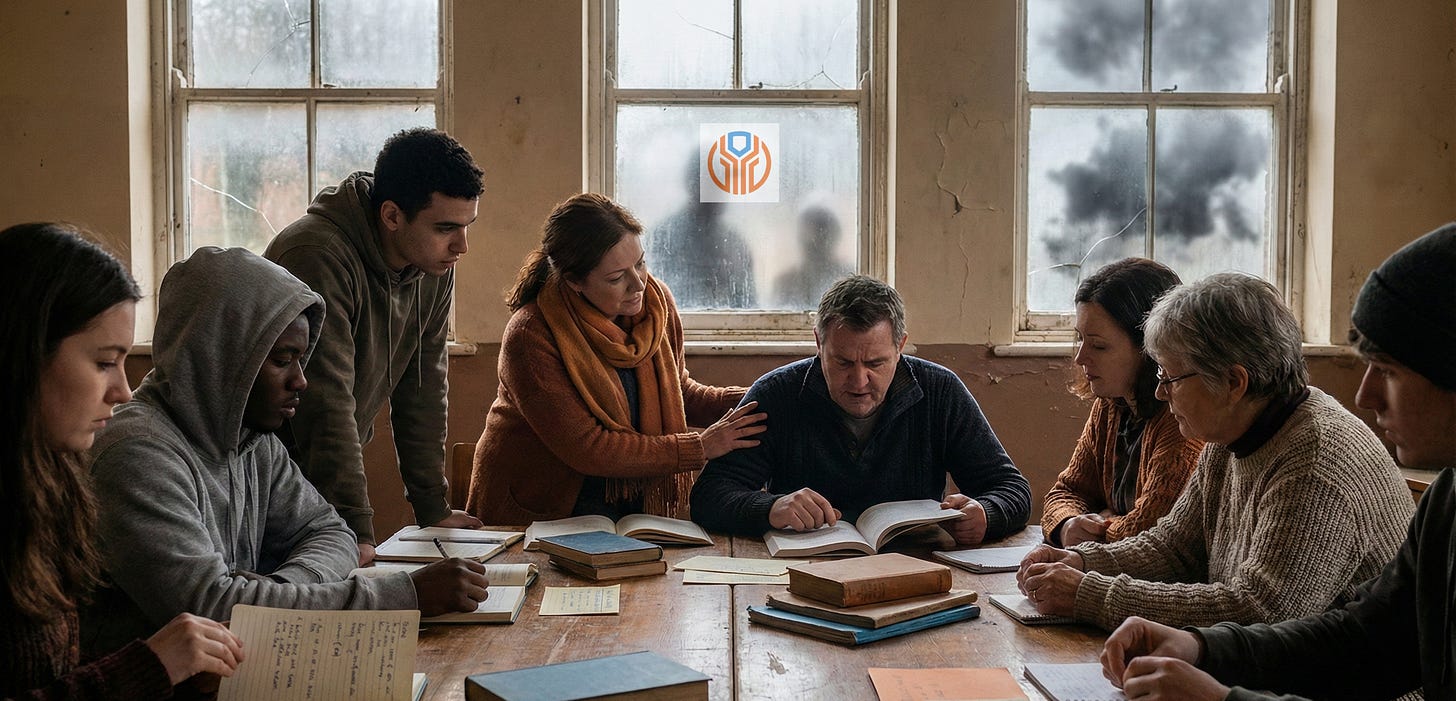In Crisis Times, We Choose To Trust Education
At a moment when humanities and civic institutions are destabilizing, investing in trust-based education becomes an act of preservation, renewal, and public responsibility.
In a time when civic institutions and non-profit educational initiatives are facing unprecedented pressure, it’s worth spotlighting what real support for meaningful learning looks like.
Institute for Social Sciences & Humanities (ISSH) – operating under the banner of “Trust Education” – holds a 501(c)(3) status, which means every donation is tax-deductible and fully oriented toward its educational mission. (LinkedIn)
What is Trust Education (ISSH)?
At its core, Trust Education is a non-profit educational vehicle: an organization structured as a 501(c)(3) so that public support translates directly into educational activities, not profit. Under U.S. tax law, this status means the organization is recognized as “organized and operated exclusively for … educational purposes” and eligible to receive tax-deductible contributions. (IRS)
In practice, this means Trust Education mobilizes funds, networks, research and delivery around education and civic engagement via ISSH’s work—and because of its tax-exempt status, its accountability and transparency standards are elevated.
Why is this important now?
We live in a moment of compounding crises:
Many non-profits and civic initiatives are being squeezed: funding is tighter, public grants are shrinking, and volunteerism is more difficult to sustain.
At the same time, the educational landscape, particularly civic, social sciences and humanities education, is under strain. Trust (in systems, institutions, educational processes) is eroding globally. (Oxford Research Encyclopedias)
Moreover, when an initiative bears the legal status of a 501(c)(3), it invites public investment. Donors, institutions and individuals know that contributions are tax-deductible, and that the organization operates within a regulatory framework that demands public disclosure, mission alignment and accountability. (IRS)
In short: supporting Trust Education means investing in an entity designed for impact, not profit—and one that is legally and operationally configured to channel resources into meaningful educational work.
Why this kind of education?
With budget cuts, program cancellations and shifting donor priorities, many educational and civic programs are being deferred or abandoned. Yet precisely during such times the need for robust civic education, critical thinking, trustworthy institutions and interdisciplinary inquiry becomes more acute.
Education isn’t just about content: it’s about building trust in education, as fundamental research shows. When learners, educators, systems and communities operate in a regime of trust, the outcomes are markedly better: better engagement, higher attainment, more resilience. (Oxford Research Encyclopedias)
By placing emphasis on trust, mission-oriented status, and public-good education, Trust Education/ISSH is situated to fill a gap many are overlooking.
What your support enables
When you contribute (financially or through partnerships) to an organization like Trust Education (ISSH), you are:
Enabling mission-driven programming rather than overhead-heavy initiatives.
Supporting educational work that is grounded in transparency (thanks to 501(c)(3) requirements).
Strengthening the ecosystem of civic, humanities and interdisciplinary education at a time when it’s vulnerable.
Signaling that you stand for education as a public good, not just a commodity.
A call to action
If you believe in education that builds trust, that fosters critical thinking, that elevates civic engagement, and you recognize that this kind of work is especially vulnerable now, then consider supporting Trust Education (ISSH). Whether you donate, collaborate, partner or simply amplify their work, your involvement matters.
👉 Follow Trust Education (ISSH) to stay engaged. Look into how you can get involved, whether through thought-leadership, funding or network-building.
Let’s make sure that at this critical time, valuable educational infrastructure doesn’t collapse, but instead grows stronger, more resilient, and more credible.
If you’re interested in learning more about how to partner with them or maximize your support (tax-efficiently, strategically), feel free to message us, We’ll be happy to connect and explore opportunities together.
Thank you for reading — and for being someone who cares about education, trust and the future of our civic institutions.


